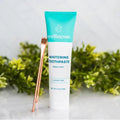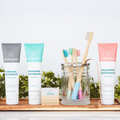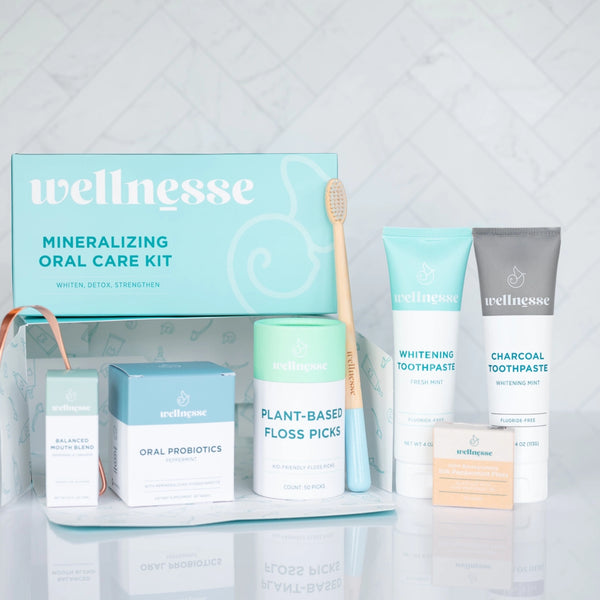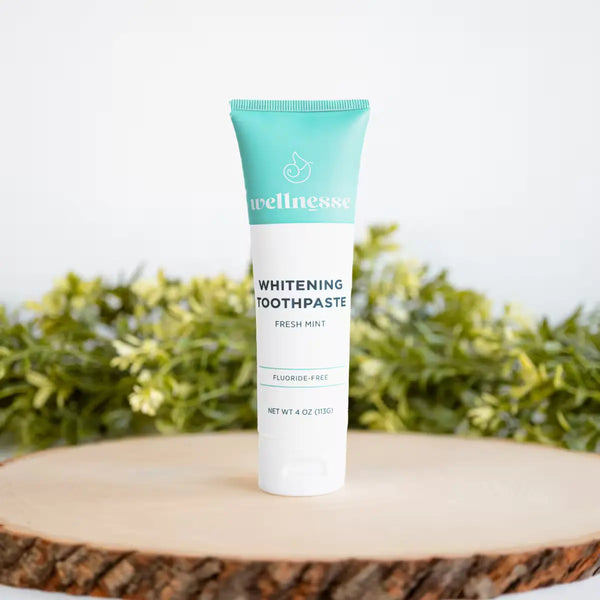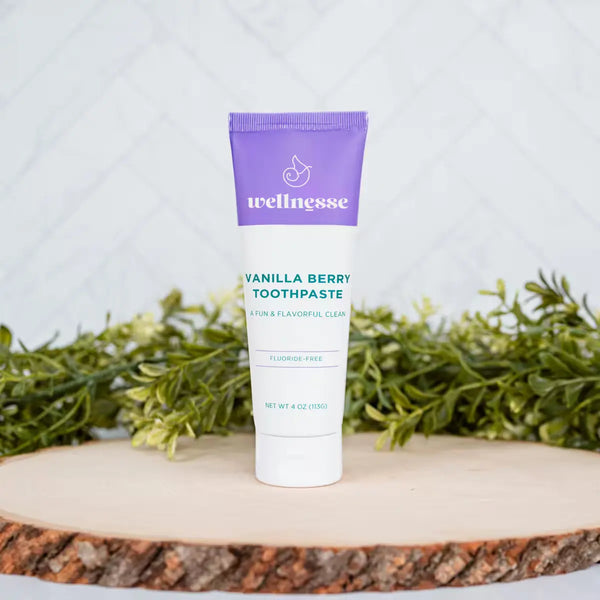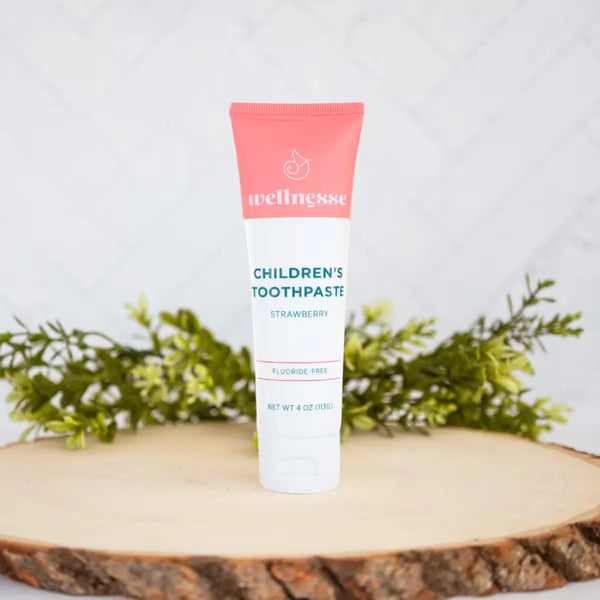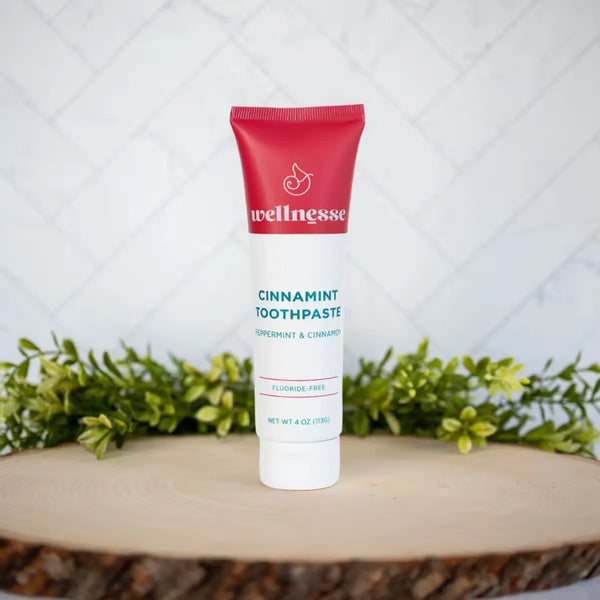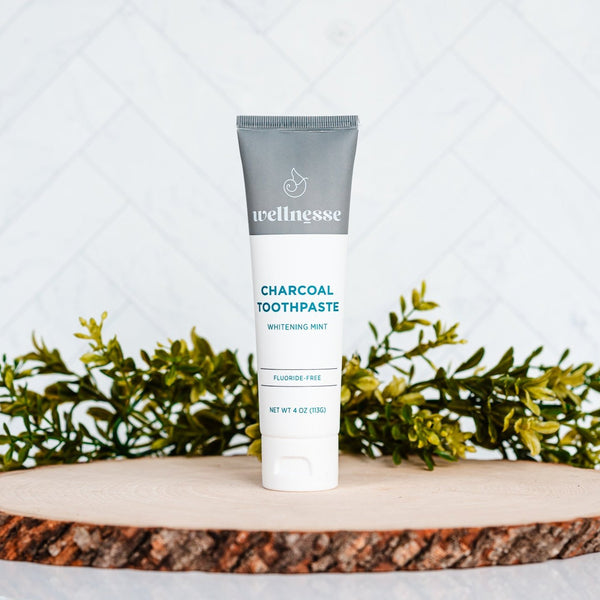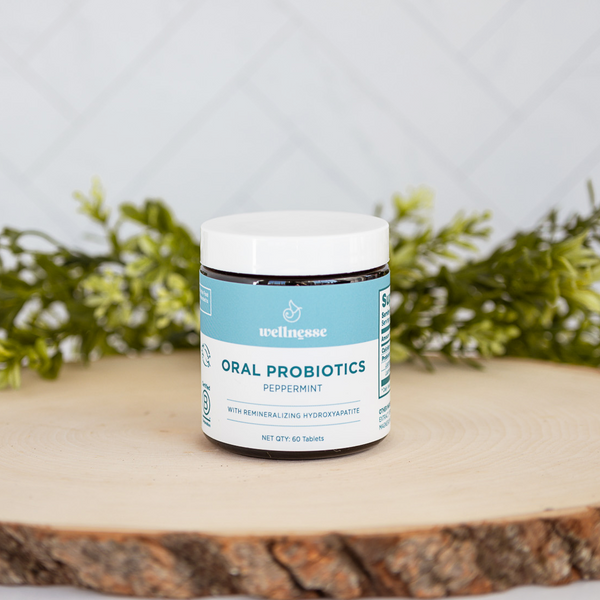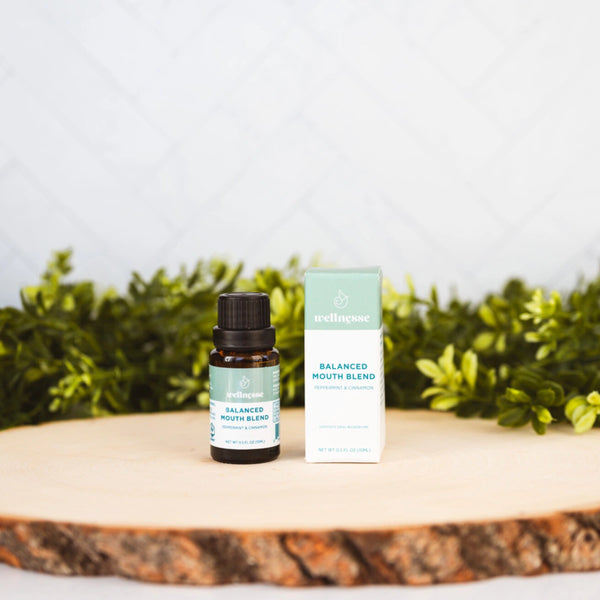Most people don't know how intimately connected your hair is to your internal health. Though it may not seem like it, different medical conditions and even simple vitamin deficiencies can affect everything from the volume of your hair to how fast it grows.
But before we dive into everything you need to know to stop hair loss, let's review some background information on your hair and what it's made of!
The best healthy, natural hair 'hack' is clean, supercharged hair foods. Try them today in our Wellnesse Hair Care!
Keratin
Your hair consists of a durable protein called keratin. Because of all the things we do to our hair these days (heating, straightening, curling, dyeing, and so forth), the inner layer of the hair (called the cortex) often becomes damaged, leading to dryness, frizz, breakage, and, at worst, hair loss.
Because keratin is essential to hair health, we include it in our shampoo and conditioner. While many companies use less-than-ideal keratin sources (such as chicken feathers), at Wellnesse, we use clean, ethical, keratin-derived ingredients like lentils, cicer seed, and quinoa! If you want to learn more about the benefits of keratin for damaged or thinning hair, you can find the full article here.
An Overview of Hair Structure
If we start from the surface and work our way down, the first part of the hair structure is the shaft, which sticks out of the skin. Most people refer to this part as the 'hair.' Of course, as we mentioned earlier, even this part of the structure consists of two parts - the outer layer (the cuticle) and the inner layer (the cortex). Following the hair shaft down (toward the scalp), we reach the hair follicle, which encapsulates the shaft underneath the skin. Further down from the hair follicle is the hair root, which leads to the hair bulb. Lastly, right at the bottom of the hair bulb, we find the hair papilla, which provides the blood flow to the root and around which new hair cells develop.
How the Body Grows Hair (and Loses It)
As new hair cells develop at the root, they harden and push up through the follicle and out of the skin as new hair shafts. The amount of melanin in the hair and the individual hair's cross-sectional shape will determine the hair's physical appearance (light, dark, straight, curly, etc.). However, most new hairs won't be distinctive from the other hair already present. Over time, individual hair shafts fall out, and new, healthy shafts grow in their place. This type of hair loss is entirely normal. (So, no need to panic when some hair comes out in the shower!)
This process of hair loss becomes problematic when it occurs too much or too often. Three common causes of or contributors to hair loss and baldness are alopecia areata, oxidative stress, and fundamental nutrient deficiencies.
Alopecia is an autoimmune condition that causes the body to mistakenly attack the hair follicles, resulting in rapid hair loss or complete baldness. This type of hair loss can occur on any part of your body where hair grows, not just on your head. Hair loss from alopecia can be temporary or permanent.
Though no scientific studies exclusively name oxidative stress as a definitive cause of hair loss, circumstantial evidence suggests that it may play a part. Both oxidative stress and the production of free radicals (which increase as we age) contribute to the aging of the hair follicle, resulting in graying and hair loss.
While the evidence for nutrient deficiency causing hair loss is also somewhat unclear, certain deficiencies are more commonly associated with hair loss than others. Deficiencies in iron, vitamin D, and vitamin C may lead to hair loss, and increasing these levels could be helpful. Oddly enough, some vitamins and nutrients (such as vitamin A and selenium) can cause hair loss when you consume too much of them, so be careful to ensure that you aren't exceeding the recommended daily intake.
Your Cheat Sheet for Beautiful, Healthy Hair
Now that we've established all the things that can harm your hair, let's talk about all the things that keep it healthy and beautiful!
Vitamin A
Vitamin A plays a significant role in cell growth and division and is necessary for strong immune function. (Remember that autoimmune disorders can contribute to hair loss!) Oddly enough, people who have been supplementing with vitamin A for particular health concerns may notice an improvement in their hair (quality and growth) once their normal levels are restored!
Vitamin B
Vitamin B is often referred to as a complex vitamin due to the different forms it takes. Some of these forms include:
- B1 (thiamine)
- B2 (riboflavin)
- B3 (niacin)
- B5 (pantothenic acid)
- B6 (pyridoxine)
- B7 (biotin)
- B9 (folic acid, folate)
- B12 (cobalamin)
Each of these has various active forms that serve different bodily functions. Fortunately, maintaining a balanced diet can ensure you get sufficient amounts of most (if not all) of the forms of vitamin B. Vitamins B5, B7, B9, and B12 are especially noteworthy for their ability to boost hair growth and lock in hydration.
Vitamin C
A powerful antioxidant, vitamin C combats both oxidative stress and free radicals. Vitamin C helps the body absorb iron, making it a beneficial supplement for people suffering from hair loss due to iron deficiency.
Vitamin E
Like vitamin C, vitamin E helps reduce oxidative stress and free radical damage. A little closer to the surface, vitamin E also soothes and moisturizes the hair and scalp.
Iron
Iron delivers oxygen to the hair follicle. Iron deficiency, as noted above, has been noticed in women struggling with hair loss.
Phosphorus
Phosphorus helps regulate healthy hair growth at the root.
Sodium
Sodium can be tricky; too much blocks hair growth, but the right amount can add excellent volume! So be careful!
Calcium
Calcium can also be beneficial in adding volume and thickness to hair; however, too much calcium can block the hair follicles.
Magnesium
Magnesium helps to regulate calcium and prevents any excess from clogging the hair follicles, allowing for healthy growth.
Selenium
Selenium helps the body to build more than thirty essential proteins.
Zinc
Zinc deficiency has a notable connection with sufferers of alopecia. Some studies show that healthy levels of supplementation can aid in hair regrowth.
What Are The Next Steps?
So, you have all the information. Now the question is, what do you do with it?
Researching every single product and ingredient, incorporating all of them into your daily routine, and eliminating all the toxins can seem like a tall - nearly impossible - order. And if perfection is what you aim for, then it is an impossible task. But around here, all we do is the best we can - and that's more than enough!
If you're still feeling a little intimidated, then we have good news. We've already done the hard work for you!
At Wellnesse, we've crafted all our formulas with our loved ones in mind, using the cleanest sources of natural ingredients possible. Our superfood ingredients (like aloe vera, essential oils, fatty acids, and amino acids) pack potent nutrients into scalp-nourishing recipes that will give you beautiful, healthy hair from the inside out. We will always encourage you to do your research and choose what best fits your family's unique needs - we're just proud to give you a clean, safe place to start.
Beauty and wellness have never fit together so well. Check out our hair care collection here.
Resources
InformedHealth.org [Internet]. Cologne, Germany: Institute for Quality and Efficiency in Health Care (IQWiG); 2006-. What is the structure of hair, and how does it grow? 2019 Aug 29. Available from: https://www.ncbi.nlm.nih.gov/books/NBK546248/
Trüeb R. M. (2009). Oxidative stress in the aging of hair. International journal of trichology, 1(1), 6–14. https://doi.org/10.4103/0974-7753.51923
Almohanna, H. M., Ahmed, A. A., Tsatalis, J. P., & Tosti, A. (2019). The Role of Vitamins and Minerals in Hair Loss: A Review. Dermatology and therapy, 9(1), 51–70. https://doi.org/10.1007/s13555-018-0278-6
